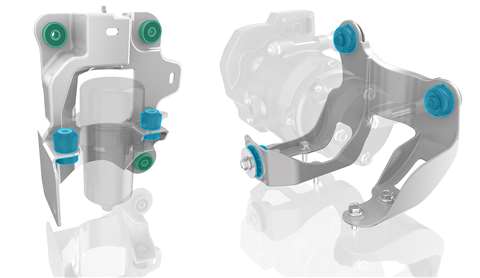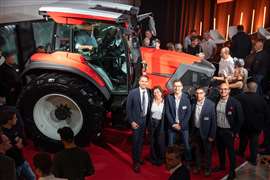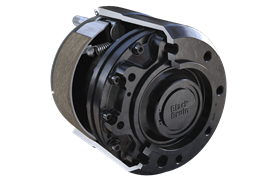Vibracoustic introduces decoupling solutions for electric vehicles
24 February 2022
Products designed to reduce NVH from auxiliary components in battery electric vehicles.
Vibracoustic is developing a range of decoupling solutions for auxiliary components in electric vehicles (EVs). Manufacturers are facing a range of new noise, vibration and harshness (NVH) challenges as auxiliary systems – like coolers, pumps and compressors – are not belt-driven in e-mobility applications.
EVs may no longer use internal combustion engines, but they still require various auxiliary systems such as cooling for batteries, motors and the cabin or to support the braking system. The decoupling of these systems has become an increasingly important focus for vehicle manufacturers, as the noise and vibration that they generate is no longer masked by the internal combustion engine.
In addition, these auxiliary systems are no longer positionally constrained by the location of the engine, meaning that they could be packaged differently within the chassis, leading to a host of new NVH issues. Using a holistic system approach to vehicle NVH, Vibracoustic said its engineers are developing mounting solutions to safely decouple auxiliary components from coolers and pumps to compressors to increase durability as well as the overall driving comfort.
 Vibracoustic has introduced a line of decoupling solutions to reduce NVH in electric vehicles. A vacuum pump is shown at left, while an eCompressor is on the right. (Illustration: Vibracoustic)
Vibracoustic has introduced a line of decoupling solutions to reduce NVH in electric vehicles. A vacuum pump is shown at left, while an eCompressor is on the right. (Illustration: Vibracoustic)
These decoupling solutions take into account wider vehicle NVH considerations and include the option for single or double isolation layers. A double isolated bracket was used for a vacuum pump for the braking system of a standard C-segment vehicle to eliminate unwanted noises of the braking system. While these NVH issues had no impact on the performance of the vehicle’s braking system, many customers would perceive this as a safety-critical issue or attribute it to poor build quality.
Vibracoustic engineers have also developed decoupling solutions for eCompressors, which are electronically powered compressors used in EVs for air conditioning and battery cooling.
By analyzing the excitations, the company’s engineers developed a specifically tuned mounting concept, which is combined into a mounting assembly. It eliminates the vibrations and noise generated inside the compressor, said the company, and minimizes the vibration level for sensitive conditions, such as during high-voltage fast charging. The engineering team achieved these objectives, said the company, through exhaustive simulation and testing, determining the optimum component geometry and ideal rubber compound for maximum effectiveness and service life.
“As OEMs embrace electrification and battery electric vehicles, the industry is facing new and evolving NVH challenges,” said Dr. Jörg Böcking, CTO, Vibracoustic, Darmstadt, Germany. “With decreased powertrain excitation, far greater emphasis and attention are being placed on noises and vibrations generated by the vehicle. Failing to address these issues or meet the increased NVH standards of EVs can significantly reduce driver comfort and impact consumer perceptions. Our engineers have drawn from their extensive NVH expertise to develop new decoupling solutions for auxiliary systems that meet the requirements and ambitions of OEMs in this fast-moving transition period.”
POWER SOURCING GUIDE
The trusted reference and buyer’s guide for 83 years
The original “desktop search engine,” guiding nearly 10,000 users in more than 90 countries it is the primary reference for specifications and details on all the components that go into engine systems.
Visit Now
STAY CONNECTED




Receive the information you need when you need it through our world-leading magazines, newsletters and daily briefings.
CONNECT WITH THE TEAM













